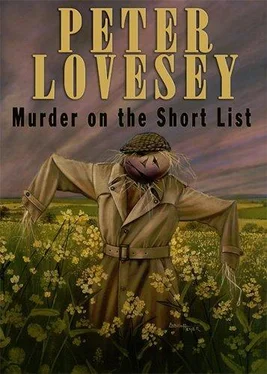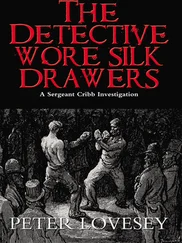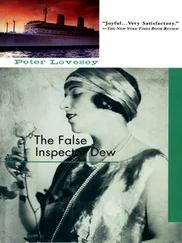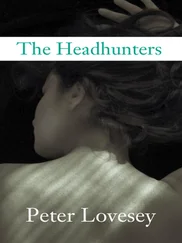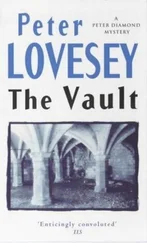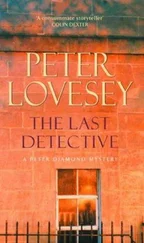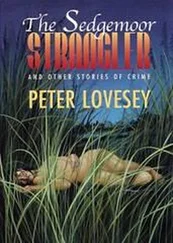Peter Lovesey
Murder on the Short List
‘The Field’ was first published in Green for Danger (The Do-Not Press, 2003); ‘Bullets’ in The Mammoth Book of Roaring twenties Whodunnits (Robinson 2004); ‘Razor Bill’ in Sherlock, 2004; ‘Needle Match’ in Murder is My Recquet (Mysterious Press, 2005); ‘A Blow on the Head’ in I.D.Crimes of Identity (Comma Press, 2006); ‘The Munich Posture’ in The Rigby File (Hodder & Stoughton, 1989); ‘The Best Suit’ in this edition; ‘The Man Who Jumped for England’ In Mysterious Pleasures (Little, Brown, 2003); ‘Second Strings’ in The Strand Magazine, 2004; ‘Bertie and the Christmas Tree’ in The Strand Magazine, 2007; ‘Say That Again’ in The Ideas Experiment (Paw Paw Press, 2006); ‘Popping Round to the Post’ in The Verdict of Us All (Allison & Busby, 2006); ‘Window of Opportunity’ in Sunday Express, 2003; ‘The Case of the Dead Wait’ in Daily Mail, 2004.
Writers get used to being asked where they get their ideas from. If you’re a crime writer, as I am, the question is loaded. Do I have personal experience of disposing of bodies and evading the police? And when I give my truthful answer, that my ideas come from numerous sources, I sense the questioner thinking that’s a cop-out, a typical piece of evasion from someone up to his ears in crime.
Short stories such as these do sometimes have a clear origin enabling me to give straight answers. “The Field” was inspired by the sight of a crop of oilseed rape dominating the landscape and completely obscuring the ground it sprang from. What else was it hiding, I wondered? Wild life, children at play, lovers in flagrante, or a corpse?
“Bullets” was suggested by an old man who told me he’d once won a large amount of money in a newspaper competition to add up to four witty words to a given phrase. His win had created lifelong jealousy in his family. Intrigued, I started researching these “Bullet” competitions just at the time I was asked to contribute a story with a twenties setting to an anthology.
“Second Strings” jumped out from a newspaper report of the theft of a valuable harp that later turned up in someone’s garden. I couldn’t believe a harpist would steal someone else’s instrument and I couldn’t think of anything more difficult to carry off than a harp. It became a challenge to create a story that fitted the facts.
My wife Jax watches tennis on TV by the hour. She sees patterns of play that elude me. I find myself getting more interested in the officials than the players. There’s a story in every one of them, the umpire, the line judges and the ballboys. When I was invited to write a tennis story I thought it would be interesting to tell the whole thing from the viewpoint of a ballboy, and that became “Needle Match.”
Who hasn’t heard the phrase “window of opportunity”? It is a modern cliché, reduced now to just “window,” as in, “I’ll see if I have a window some time next week.” Having heard it once too often from some trendy on the radio, I decided to have fun with the kind of person who uses it, and that gave me a theme as well as the title of a new story.
“Say That Again” was a deliberate exercise undertaken with two writer friends, Liza Cody and Michael Z. Lewin. We took a newspaper cutting about geriatric crooks and each agreed to use it as a trigger for a story. This became a booklet called The Ideas Experiment and launched as a panel at a conference called Left Coast Crime. I drew heavily on memories of visiting my mother in her retirement home and listening to the residents discussing each other and the staff. Who would shape such a group into effective criminals? It had to be a military man, eager to lead one last campaign, and of course the motive had to arise from one of the infirmities of old age.
For “Razor Bill,” I wanted to give an outing to the two Victorian detectives I used in my first novels back in the seventies. Sergeant Cribb and Constable Thackeray featured in eight books and a TV series but had lain dormant for twenty-five years. Razor Bill is active in 1882, six years before Jack the Ripper terrorised London, and it has to be dear old put-upon Thackeray who acts as the decoy.
In a similar way, I put Bertie, the Prince of Wales, through his paces in “Bertie and the Christmas Tree,” a seasonal story commissioned by The Strand Magazine. The germ of this one was the widely repeated but mistaken belief that Bertie’s father, Prince Albert, brought the first Christmas tree to Britain. I believed it, too, but a little investigation soon informed me otherwise. Still, the notion of using a Christmas tree in a royal murder mystery fired my imagination.
In 2006, the distinguished crime writer H.R.F. Keating celebrated his eightieth birthday and I was asked by his wife Sheila to edit a volume of short stories by members of the Detection Club, of which Harry was President for many years. It was a happy task because his colleagues were delighted to write stories in his honour. Each tale had a link of some sort to Harry. In my letter to would-be contributors I suggested various elements in Harry’s life and fiction they might wish to explore. This left me with a problem: what could I write about that I hadn’t already suggested? In the end I looked up the great man in Who’s Who and found that he lists his occupation as popping round to the post and that delivered the gift I needed.
You now know where some of my ideas came from. Not all, you’ll say. And I will admit that I can’t remember how the others dawned on me. Maybe it was while I was digging a grave in the woods.
A field of oilseed rape was in flower, brilliant in the afternoon sun, as if a yellow highlighter had been drawn across the landscape. Unseen by anyone, a corpse was stretched out under the swaying crop, attended only by flies and maggots. It had been there ten days. The odour was not detectable from the footpath along the hedgerow.
Fields have names. This one was Middle Field, and it was well named. It was not just the middle field on Jack Mooney’s farm. It was the middle of his universe. He had no life outside the farm. His duties kept him employed from first light until after dark.
Middle Field dominated the scene. So Jack Mooney’s scarecrow stood out, as much as you could see of it. People said it was a wasted effort. Crows aren’t the problem with a rape crop. Pigeons are the big nuisance, and that’s soon after sowing. It’s an open question whether a scarecrow is any deterrent at all to pigeons. By May or June when the crop is five feet tall it serves no purpose.
“Should have got rid of it months back,” Mooney said.
His wife May, at his side, said, “You’d have to answer to the children.”
From the highest point at the top of the field you could see more than just the flat cap and turnip head. The shoulders and part of the chest were visible as well. After a long pause Mooney said, “Something’s happened to it.”
“Now what are you on about?”
“Take a look through the glasses.”
She put them to her eyes and adjusted the focus. Middle Field was all of nine acres.
“Funny. Who did that, I wonder?”
Someone had dressed the thing in a raincoat. All it was supposed to be wearing were Mooney’s cast-off shirt, a pair of corduroy trousers filled with straw and his old cap.
“How long has it been like that?”
“How would I know?” Mooney said. “I thought you would have noticed.”
“I may go on at you for ignoring me, but I’m not so desperate as to spend my days looking at a straw man with a turnip for a head.”
Читать дальше
